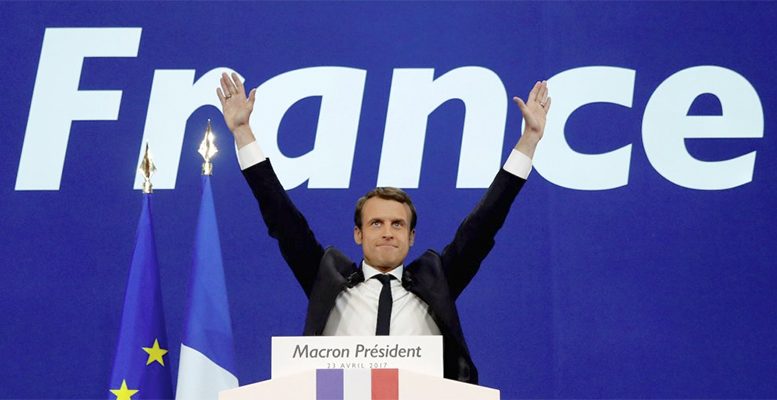Nick Ottens | Emmanuel Macron has come under criticism for creating an “imperial” or “Jupiterian” presidency in France.
A speech in Versailles today, in which he is due to brief lawmakers on his agenda, is the latest example. The French don’t have such a “state of union” tradition.
The setting — the palace of Sun King Louis XIV — lends credence to the accusations, although this was not Macron’s choice. The constitution requires that joint sessions of parliament take place there.
Role models
Macron’s defenders argue that the French desire a sense of national purpose after the showman presidency of Nicolas Sarkozy and the disappointment of François Hollande.
Moreover, there is purpose to the theater, as Paul Taylor reports for Politico:
Macron’s role models are [Charles] de Gaulle and Francois Mitterrand, each of whom had grand, long-term objectives — decolonization and modernization for the former, social justice and European integration for the latter — that enabled France to punch above its weight on the world stage. Macron’s objectives are a fusion of theirs: economic reform and European integration.
Concentration of power
Critics says Macron is succumbing to the foibles of personal rule: a concentration of power and a tendency to sideline intermediate institutions, such as political parties and trade unions.
There is something to this.
Macron’s centrist party won a comfortable majority in legislative elections last month. Most deputies are new to politics and owe their seat to him personally. They are unlikely to rebel.
A state of emergency, in effect since the 2015 Paris terrorist attacks, gives the executive more leeway vis-à-vis the judiciary.
On the other hand, this is how the country’s mixed system of parliamentary and presidential democracy is supposed to work. When the president has a majority, he is more powerful (domestically) than even his American counterpart.
Not overreaching
Macron doesn’t look like a man who would let this go to his head, nor has he overreached.
One of the first things he did after winning the presidency was assembling trade unionists in the Elysée Palace to discuss labor reform. The changes his government unveiled after those meetings are sensible, not radical.
Despite no longer needing allies in other parties, Macron has also kept moderate Republicans and Socialists in his cabinet.
If Macron wanted more power, he could have it. Instead, he really does seem focused on building a national consensus for liberal economic reform and closer union in Europe. Give him a chance to make that happen.





